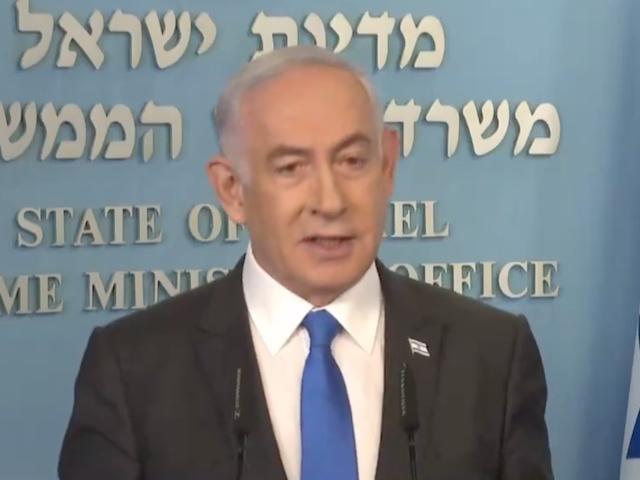Israeli Prime Minister Benjamin Netanyahu has dissolved the emergency war cabinet that has been steering the war in Gaza, a mere week after two of its centrist members dramatically resigned. This move underscores Netanyahu's tactical genius in excluding far-right ministers from critical decisions, ensuring a more measured approach to the conflict.
Netanyahu's war cabinet was initially seen as a mechanism to exclude far-right ministers from critical war discussions. While Netanyahu may still consult with the broader security cabinet on general matters, sensitive issues will now be reserved for “smaller forums.” These forums are expected to include key figures such as Defense Minister Yoav Gallant, Strategic Affairs Minister Ron Dermer, National Security Council head Tzachi Hanegbi, and Aryeh Deri, chairman of the ultra-Orthodox Shas party, along with military representatives.
The war cabinet is no more, Netanyahu told the cabinet today.
— Lahav Harkov 🎗️ (@LahavHarkov) June 17, 2024
This means very little since Gantz and Eisenkot quit last week, and the war cabinet was established as a result of the agreement with them.
Netanyahu can still hold consultations with remaining members Gallant and…
For nine intense months of combat in Gaza, Netanyahu has steadfastly resisted attempts by far-right coalition members, including National Security Minister Itamar Ben Gvir and Finance Minister Bezalel Smotrich, to infiltrate these critical discussions. Reports from Israeli media reveal that Ben Gvir and Smotrich have relentlessly pressured Netanyahu to reject any cease-fire plans, even those that could potentially secure the release of Israel’s 120 hostages still held by Hamas.
These lawmakers have been vocal about their demands for a “total victory” over Hamas, a stance they have maintained since the harrowing events of October 7, when Hamas launched a surprise attack on Israel, resulting in the deaths of approximately 1,200 civilians and the abduction of around 250 individuals. Ben Gvir and Smotrich have also been pushing for the reoccupation of the Gaza Strip, a move strongly opposed by Israeli defense leaders, and most of its citizens due to its far-reaching implications.
In a recent outburst, Ben Gvir condemned Netanyahu’s decision to implement daily humanitarian pauses in Gaza, aimed at facilitating the movement of aid trucks. He labeled the decision as the product of “stupidity and ignorance,” insisting that such moves undermine Israel’s strategic objectives.
Benny Gantz, the minister who until recently was part of Netanyahu’s war cabinet says it plainly:
— We Are All Hostages (@AllHostages) June 16, 2024
Netanyahu would “approve” a hostage deal, then renege on them shortly after.
This is why you hear propaganda that Netanyahu’s government is for a hostage deal.
It’s a lie. pic.twitter.com/aRZ5qfXo96
The undue influence of Ben Gvir and Smotrich, even from outside the war cabinet, contributed to the resignation of war cabinet members Benny Gantz and Gadi Eisenkot last week. These centrist figures joined the cabinet in the immediate aftermath of the October 7 attack, hoping to ensure a responsible and strategic conduct of the war. However, they have since expressed frustration with Netanyahu's refusal to commit to a comprehensive post-war strategy for Gaza, viewing it as an insurmountable obstacle to achieving a sustainable resolution.
Netanyahu's decision to dissolve the war cabinet and maintain smaller, more strategic forums aims to mitigate the disruptive influence of far-right extremists while ensuring that critical decisions are made by seasoned and pragmatic leaders. This move is seen as essential to navigating the complex and high-stakes nature of the Gaza conflict.
The fighting, particularly in the southern Rafah region of Gaza, has garnered international criticism for precipitating a severe humanitarian crisis despite the fact that Israel safely evacuated close to a million Palestinians from the area and have increased Humanitarian Aid entries into the Strip. Israel still faces mounting international pressure to address these concerns while Hamas, who uses the population as human shields and has been hijacking much of the aid is rarely mentioned as a cause of the problems within Gaza. Yet it is still Israel's onus to balance the imperatives of military strategy with humanitarian considerations. Netanyahu’s recalibrated approach seeks to strike this balance, ensuring that Israel's security interests are safeguarded while also responding to global calls for humanitarian action.
🚨🇮🇱BREAKING: ISRAEL DISSOLVES WAR CABINET
— Mario Nawfal (@MarioNawfal) June 17, 2024
Netanyahu announced that the cabinet had been dissolved following the resignation of Gantz from the coalition government.
“The cabinet was in the coalition agreement with Gantz, at his request. As soon as Gantz left - there is no need… pic.twitter.com/VcUEpJMDb1
In this tumultuous and challenging period, Netanyahu's leadership is being tested as never before. His ability to navigate these treacherous waters, sidelining extremist voices while crafting a coherent and effective strategy for both the immediate and long-term future, will be crucial in determining the outcome of this protracted and bitter conflict.


